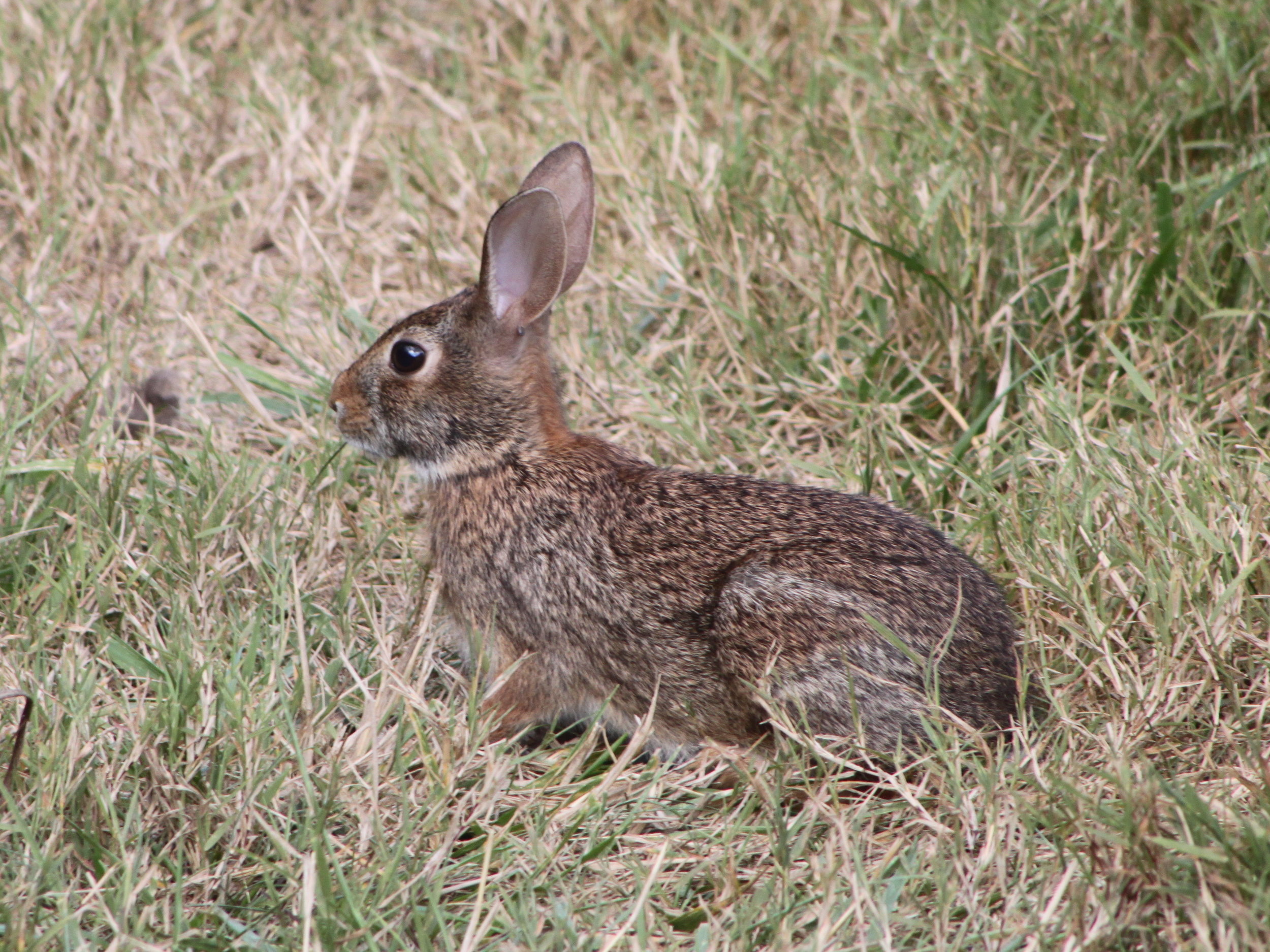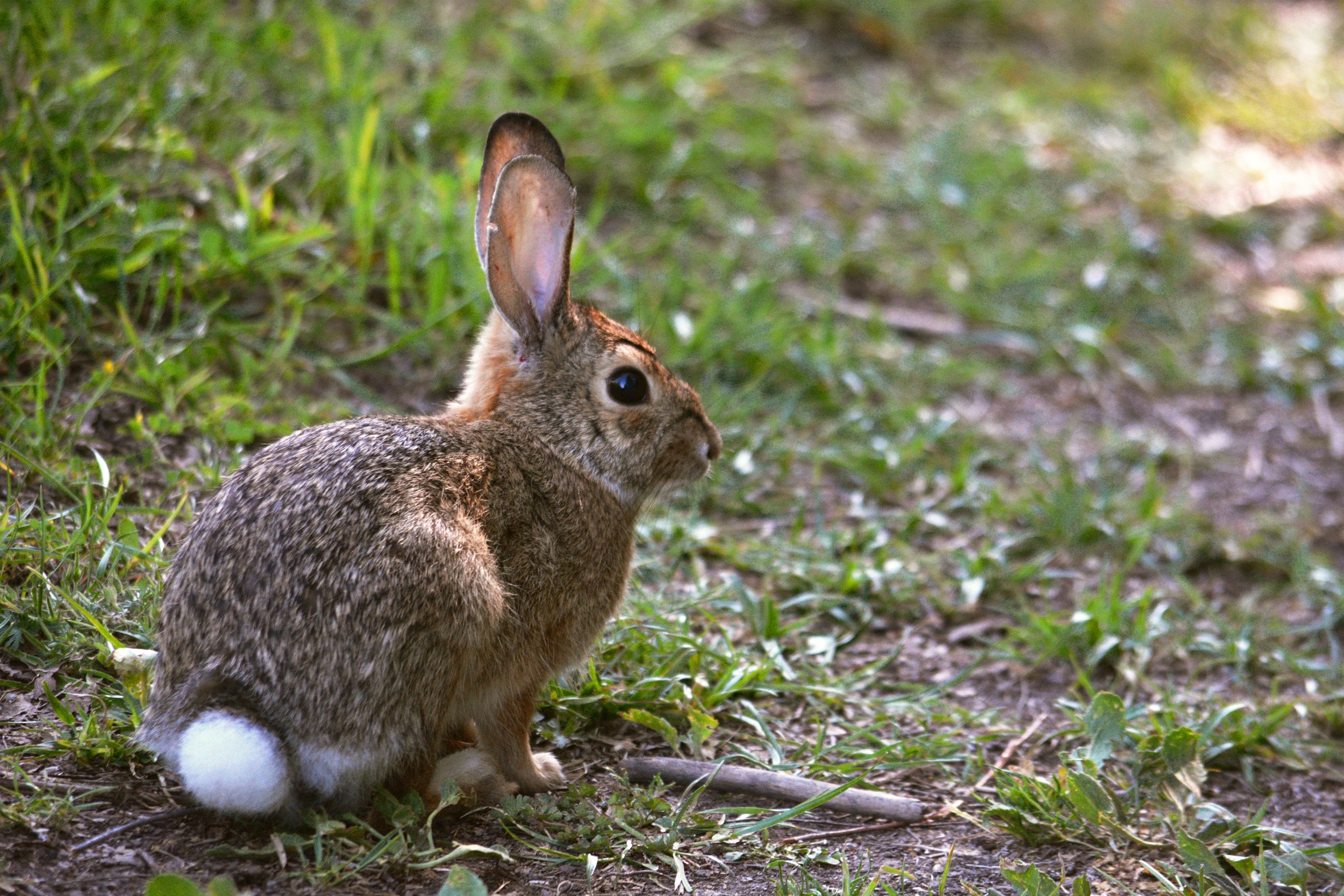Cottontail Rabbit
Cottontail rabbits are among the 20 lagomorph species in the genus Sylvilagus, found in the Americas.
Most cottontail rabbits closely resemble the wild European rabbit (Oryctolagus cuniculus). Most Sylvilagus species have stub tails with white undersides that show when they retreat, giving them their name: "cottontails". This feature is not present in some cottontails (for example, the underside of the brush rabbit's tail is gray), nor is it unique to the genus (for example, the European rabbit also has a white scut).
The genus is widely distributed across North America, Central America, and northern and central South America, though most species are confined to particular regions. Most (though not all) species live in nests called forms, and all have altricial young.
Cottontail rabbits show a greater resistance to myxomatosis than European rabbits. The cottontail is one of several species of Sylvilagus; their closest relative is Brachylagus, the pygmy rabbit. They are more distantly related to the European and other rabbits, and more distantly still to the hares.
The lifespan of a cottontail averages about two years, depending on the location. Almost every living carnivorous creature larger or faster than the lagomorph is its predator. That includes: domestic dogs, humans, snakes, coyotes, mountain lions, foxes, and if the cottontail is showing signs of illness, even squirrels.
The cottontail's biggest threat comes from birds of prey. Newborn cottontails are particularly vulnerable to these attacks. Cottontail lagomorphs use burrows vacated by other animals. Predators such as snakes are well aware of the areas used and reused by the cottontails, and kill the young at will. The mother is unable to defend her young. Though cottontails are sexually active, and mated pairs have several offspring many times in all seasons, few survive to adulthood. Those that do, grow very quickly and are full grown adults at three months.

By Douglas Mills. CC BY-NC-ND 2.0, via Flickr

By Eric Sonstroem. CC BY 2.0, via Flickr
